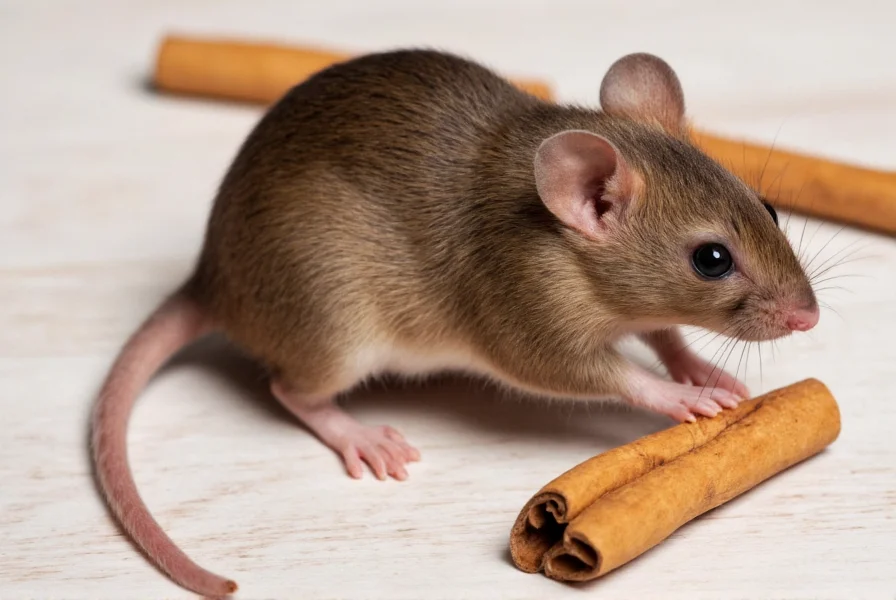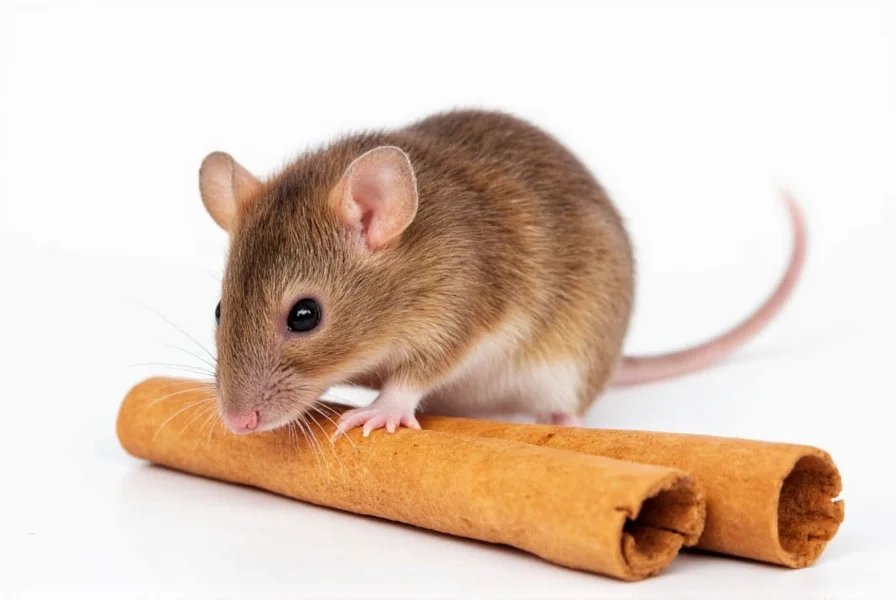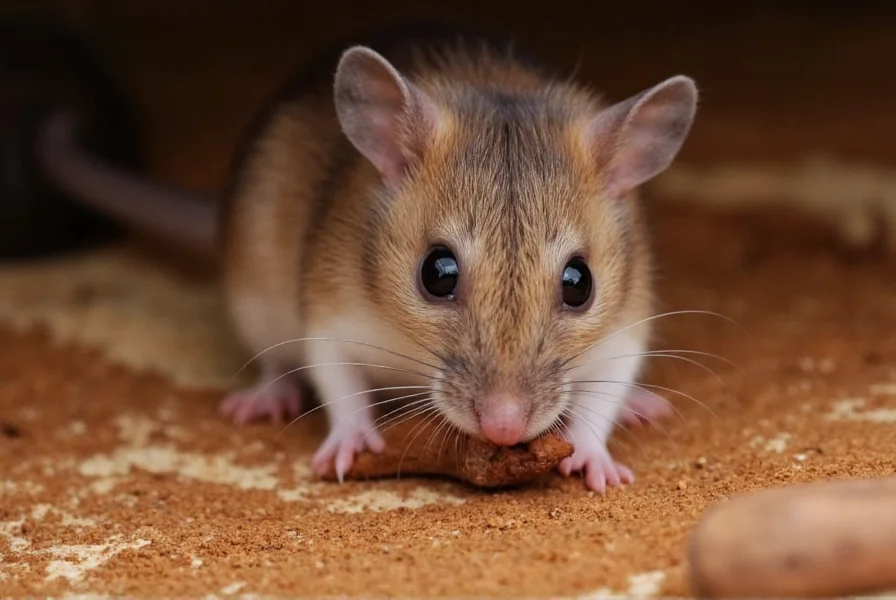Understanding rodent behavior is crucial for effective pest management. When exploring natural solutions for mouse problems, many homeowners wonder: do mice like cinnamon? The answer lies in how mice perceive scents and their biological responses to certain compounds.
The Science Behind Mice and Scent Perception
Mice possess an exceptionally developed olfactory system, with approximately 1,000 different odor receptors—significantly more than humans. This heightened sense of smell serves as their primary defense mechanism against potential threats. When encountering strong aromatic compounds like those found in cinnamon, mice experience sensory overload that triggers avoidance behavior.
Cinnamon contains cinnamaldehyde (60-90% of its essential oil composition), which creates that distinctive spicy aroma. This compound irritates the sensitive nasal passages of rodents, causing discomfort without causing harm. Unlike commercial rodenticides that poison mice, cinnamon works as a deterrent through sensory irritation—a key factor for those seeking humane mouse control methods.
Research Evidence on Cinnamon and Rodent Behavior
While comprehensive peer-reviewed studies specifically on cinnamon and mice are limited, research on related compounds provides valuable insights. A 2018 study published in the Journal of Pest Science demonstrated that essential oils containing high concentrations of aldehydes significantly reduced rodent activity in controlled environments. Though not cinnamon-specific, this research supports the mechanism by which cinnamon likely affects mice.
Field observations from pest control professionals consistently report reduced mouse activity in areas treated with cinnamon-based repellents. However, effectiveness varies based on concentration, application method, and environmental factors. Unlike chemical repellents that maintain potency for months, cinnamon's volatile compounds dissipate relatively quickly, requiring more frequent reapplication.
| Repellent Type | Effectiveness Duration | Safety for Humans/Pets | Cost Comparison |
|---|---|---|---|
| Cinnamon-based solutions | 1-3 weeks | High (non-toxic) | $$ |
| Peppermint oil solutions | 2-4 weeks | High (non-toxic) | $$ |
| Commercial chemical repellents | 3-6 months | Moderate (requires caution) | $$$ |
| Ultrasonic devices | Variable (often decreases over time) | High | $$$$ |
Practical Applications for Homeowners
For those seeking natural mouse repellent solutions, cinnamon offers a non-toxic alternative worth considering. The most effective methods include:
- Cinnamon essential oil diffusers placed near entry points (diluted properly to prevent fire hazards)
- Cinnamon stick barriers along baseboards and in cabinets
- Cinnamon powder applications in problem areas (reapplied weekly or after cleaning)
- DIY cinnamon spray (10-15 drops essential oil per cup of water in a spray bottle)
Does cinnamon repel mice naturally? Yes, but with important caveats. While cinnamon creates an unpleasant environment for mice, it doesn't eliminate existing infestations. Homeowners should combine cinnamon use with proper sanitation, sealing entry points, and removing food sources for best results. For severe infestations, professional pest control remains the most reliable solution.

Safety Considerations and Limitations
One advantage of using cinnamon as a mouse repellent is its safety profile. Unlike chemical alternatives, cinnamon poses minimal risk to humans and pets when used appropriately. However, certain precautions are necessary:
- Avoid concentrated cinnamon oil near pets, especially cats who may be more sensitive
- Don't use near food preparation areas to prevent flavor contamination
- Test surfaces first as cinnamon oil may stain certain materials
- Remember that cinnamon doesn't kill mice—it only deters them temporarily
Is cinnamon effective against mice in all situations? Research suggests effectiveness varies based on mouse population density, availability of alternative shelter, and competing food odors. In environments with abundant food sources, mice may tolerate unpleasant scents they would otherwise avoid. This explains why some homeowners report mixed results when using cinnamon as their sole pest control method.
Complementary Natural Repellent Strategies
For optimal results, combine cinnamon with other natural deterrents. Peppermint oil, cloves, and chili powder create multi-sensory discomfort that enhances repellent effectiveness. Strategic placement at entry points—such as foundation cracks, utility entry points, and garage doors—creates scent barriers mice prefer to avoid.
When implementing natural pest control methods, consistency matters. Reapply cinnamon treatments weekly or after cleaning, as moisture and foot traffic diminish effectiveness. Rotate between different natural repellents to prevent mice from becoming accustomed to any single scent.

Evaluating Effectiveness of Natural Repellents
Homeowners using cinnamon as a mouse deterrent should monitor results systematically. Place non-toxic tracking powder in problem areas to observe reduced activity. Note changes in droppings, gnaw marks, and actual sightings over a 2-4 week period. Remember that natural repellents work best as preventive measures rather than solutions for established infestations.
Can mice smell cinnamon from a distance? Their exceptional olfactory capabilities allow detection from several feet away, triggering avoidance behavior before they enter treated areas. This early warning system makes cinnamon particularly useful for protecting specific zones like pantries and storage areas.
Conclusion: Cinnamon's Role in Integrated Pest Management
While cinnamon alone won't solve serious mouse problems, it serves as a valuable component in an integrated pest management approach. Understanding that mice dislike cinnamon's strong scent helps homeowners create less hospitable environments for these rodents. When combined with proper sanitation, exclusion techniques, and monitoring, cinnamon-based repellents offer a safe, natural option for those seeking alternatives to chemical pest control.
Frequently Asked Questions
Does cinnamon actually repel mice or is it just a myth?
Scientific evidence supports that cinnamon acts as a natural mouse repellent due to its strong scent and irritating compounds. While not 100% effective, multiple field observations and related research on essential oils confirm that mice generally avoid areas treated with cinnamon, making it a legitimate natural deterrent option.
How long does cinnamon last as a mouse repellent?
Cinnamon's effectiveness as a mouse repellent typically lasts 1-3 weeks depending on the form used. Powdered cinnamon lasts about 1-2 weeks, while cinnamon essential oil applications may remain effective for 2-3 weeks. Environmental factors like humidity, foot traffic, and cleaning activities can reduce effectiveness, requiring more frequent reapplication compared to commercial chemical repellents.
Is cinnamon safe to use around children and pets?
Cinnamon is generally safe for use around children and most pets when used appropriately. However, concentrated cinnamon oil should be kept away from cats who may be more sensitive. Avoid using near food preparation areas to prevent flavor contamination, and test surfaces first as cinnamon oil may cause staining. Unlike chemical alternatives, cinnamon poses minimal toxicity risk in household applications.
What's the most effective way to use cinnamon against mice?
The most effective cinnamon application methods include: placing cinnamon sticks along baseboards, using diluted cinnamon essential oil in diffusers near entry points, creating a spray solution (10-15 drops per cup of water), and applying cinnamon powder in problem areas. For best results, combine with other natural repellents like peppermint and cloves, and reapply weekly or after cleaning. Remember to seal entry points and eliminate food sources for comprehensive pest management.
Will cinnamon get rid of mice I already have in my house?
Cinnamon alone won't eliminate an existing mouse infestation—it only deters mice from entering treated areas. For established infestations, combine cinnamon with proper sanitation, sealing all entry points, and removing food sources. In cases of significant infestation, professional pest control services may be necessary, with cinnamon serving as a preventive measure after the initial problem is resolved.











 浙公网安备
33010002000092号
浙公网安备
33010002000092号 浙B2-20120091-4
浙B2-20120091-4